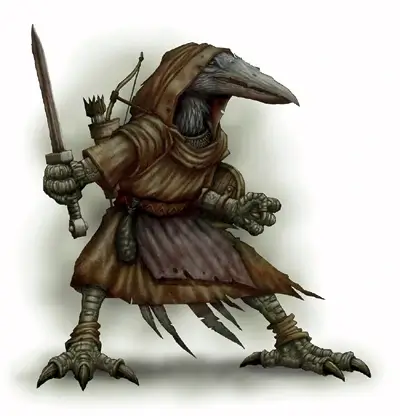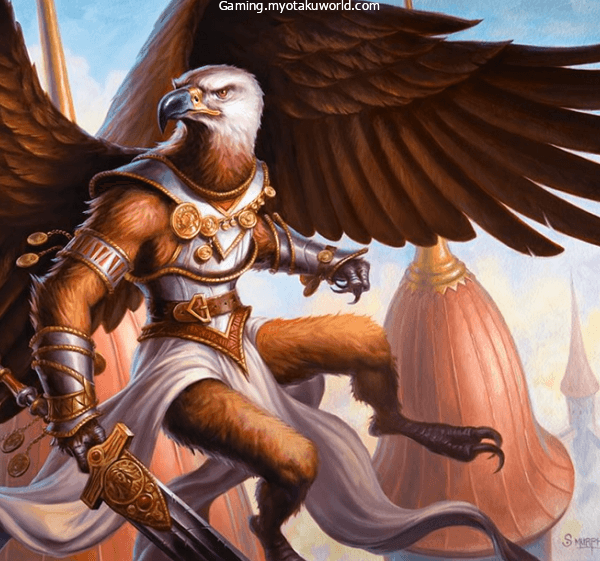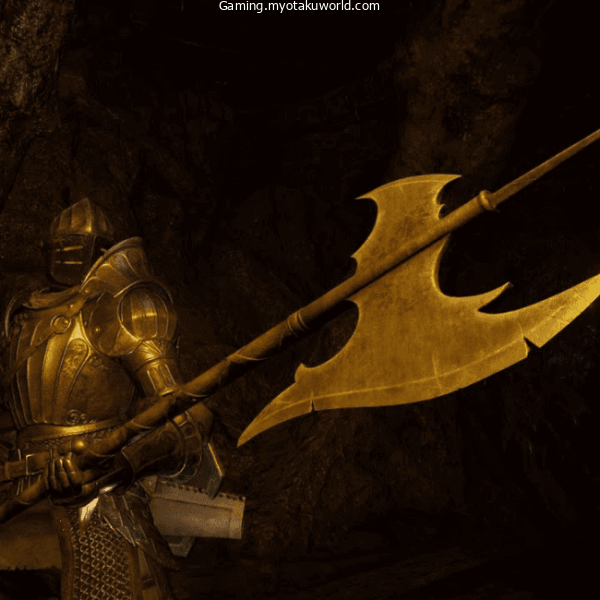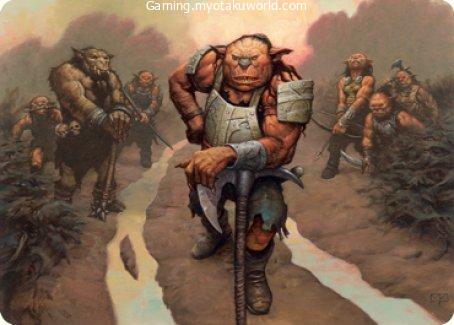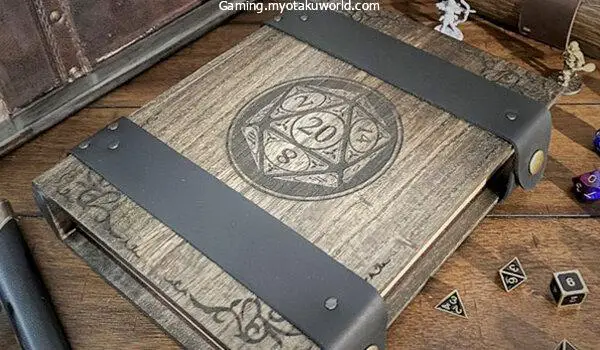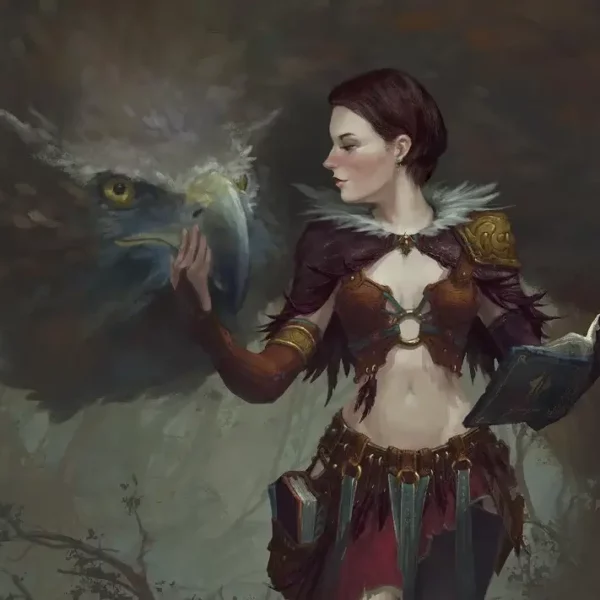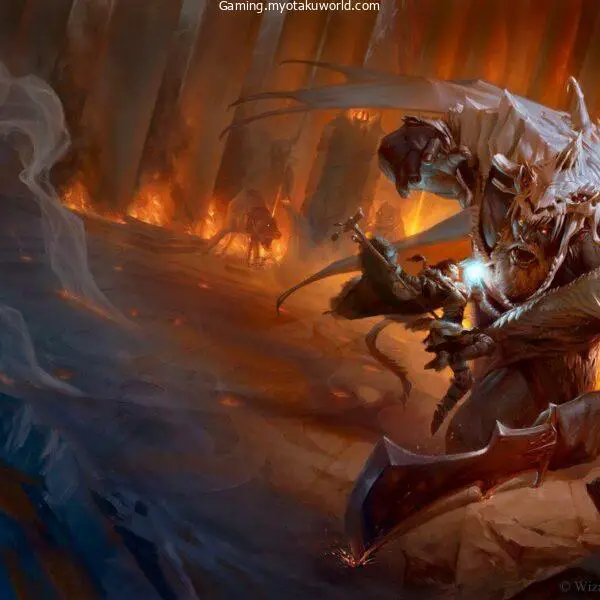Kenku is a humanoid creature that looks like a raven. These mischievous types are often covered in cloaks and robes.
They can be seen skulking on two clawed talons, but they can’t fly. Our DnD Kenku guide is now open.
Kenku Lore
The history of the Kenku is mysterious and ancient. A legend says that Kenku worshipped an extraplanar entity.
All stories tell of Kenku betraying their master, regardless of whether it was an archfiend or a demon-lord.
However, their deception was exposed and the Kenku were cursed. The Kenku lost their creativity, flight, and voice.
The Kenku were then free to roam the Material Plane with their cursed new forms.
Despite their raven-like appearances, they were cursed with the inability to fly. Kenku had to walk on two legs, just like other humanoids.
They tend to live in large, decaying cities where they are often unnoticed. Many find work as thieves or in other criminal activities because of their black feathers.
Although many Kenku may live like this, they are not necessarily evil. Kenkus long to fly again is their deepest desire. They love to be up in towers or pretend that this is possible.
Kenku have lost their creative spark, so they are unable to come up with new ideas and create anything new.
Kenku, instead, is skilled at memorizing and accurately recreating the things they see. Kenku is a great scout or spy because of this. They can hear a conversation and recreate it perfectly.
They lack creativity and are incapable of coming up with new ideas. A Kenku is a master planner. This means that they can make multiple plans.
You can give a Kenku a plan A, and then tell them what to do if the plan is changed. You could tell the Kenku to go back to a specific location if there is any change, to run away if they are caught, or to follow the instructions for situations that might arise.
Finally, the curse of Kenku took their voice. This is the most obvious aspect of the curse to anyone who has ever encountered a Kenkuin D&D.
Kenku cannot speak other than by mimicking sounds they hear. A Kenku does not have their speech or voice. They speak in a similar way to others.
Instead, kenkus speak with another person’s voice every time they speak. You can’t just say “yes” or “no” without mimicking the words of someone else.
A kenku may speak in a gravelly, deep voice one minute and then with a loud, whiny voice another.
This can be very frustrating or extremely entertaining, depending on how unpredictable and random it is.
Kenku Traits

The Kenku was originally intended to be a low-level enemy that one might face in the Monster Manual.
Wizards of the Coast soon realized that it would be equally fun to play as one. In Volo’s Guide to Monsters 2016, Kenku were made a playable species.
You can play as Kenku and gain all the racial traits. Your expected lifespan is shorter than that of humans.
You reach full maturity at twelve years old and live until the age of 60. Volo’s Guide to Monsters does not give you an easy way to determine your height or weight.
However, you are approximately 5 feet tall and weigh between 90 and 120 pounds. You can use the PHB’s random stats for a Drow to find out how to calculate this.
Your height is medium and your walking speed base is 30 feet. Your alignment is often chaotic, and Kenku tends to be more concerned with themselves than others.
You can earn a +2 bonus on your Dexterity score as a Kenku and a +1 bonus on your Wisdom score. These bonuses can be used in the “Customizing Your Origin” option from TCoE.
You are an expert in forging documents and crafting work. You have an advantage when you forge documents and craftwork.
This ability does not give you any tools proficiency so if you need to recreate a work of art, you will need to find a way.
A few sub-versive skills are your natural gift. Two of the following skills are available to you: Acrobatics and Deception, Stealth, Sleight of Hand.
Finally, even though you can understand Common and Auran, your ability to speak is limited to mimicking sounds that you have heard.
This means you can hear what your party members are saying. But communicating with them effectively can be difficult.
Roleplaying with a Kenku

It can be difficult to roleplay a Kenku character as a player.
Roleplaying Kenku characters without flight can be common, but roleplaying with these other aspects of the curse is not easy.
While mimicry is the biggest challenge for other players, there are easy ways to overcome it.
It’s much harder to roleplay characters who are incapable of creating or coming up with new ideas.
Mimicry
You can mimic sounds that you hear, even voices, using your mimicry ability. There are no limitations on how long it takes to hear a voice or mimic it.
This is how you build up a collection of sounds you can use over time.
This is a great question to ask yourself when you are creating your character.
How big is your library?
An older Kenku is more likely to have a larger library and more sound years.
Which background did you choose?
One might live alone for years and not be able to speak many words.
A merchant district urchin would have a different library than an urchin who was in a thieves guild.
Consider how big your library would be, and what kind of people you’d have the most fun with based on your history and backstory.
You don’t have to justify every word and phrase you use when you play Kenku. This would make the game more difficult and slow down.
The company you keep over the years will influence how you speak. Your party members will define your speech if your party is in a unique circumstance or has learned the name or description of an item or person.
There are many magical and interesting ways to overcome the mimicry trait. The Message cantrip, which requires you to speak what you want, won’t allow you to say anything you haven’t heard.
There are several ways to speak telepathically. Telepathic is the most common. This gives you one-way Telepathy.
You can then have fun imagining what a character would say if they were unable to speak in their voice.
Another side to the mimicry trait, however, is that it goes beyond just voices. You may be able to mimic the movements of another person but you can also mimic the sounds of footsteps, streams, and trees falling.
You will convince your DM, much like a druid convincing the DM they saw the animal they desire to transform into, that you have heard a fireball explode before.
This ability allows you to think about ways that you could trick your enemies. This ability isn’t as powerful as Minor Illusion because you can’t make the sound come from another place. You can fool many enemies if you know how to become invisible.
Creativity

Kenku has lost its creative spark. This is how you roleplay it. You will most likely be able to do all that your class or game allows you to.
What do you do if your party is planning the next move? First, you can decide to leave the planning to the rest of your party. While the others work out, you can relax and enjoy snacks.
You can also use this section of the game to solve a problem for your party and expand on your history.
You, the player, can come up with a solution and tell your party members about a time you saw someone implement it.
The pirate ship that is in the water is, for example, dangerous and can’t be attacked directly. In your hometown, you may have seen a pirate hunter waiting for the crew to return on shore leave.
Then he kidnapped one of the crew members and interrogated them. That plan could be copied right now.
A second question is: Can someone be more creative? You are a Kenku if you have zero creativity. Is that a sign that you are doomed to have zero creativity? Or is there something you can do to improve your abilities?
If you choose the latter, you will have a great character arc for your Kenku. The party tries to teach creativity and new ideas, which can lead to many memorable moments.
Don’t Pay Attention to the Challenges
These challenges can be overcome by another method: you can ignore them. You can ignore the unique challenges that a Kenku presents if you don’t want to roleplay or if you choose the Kenku because of its aesthetic.
It’s easy to explain that your character spent time in a city and has built up an extensive library of sounds.
You can therefore say any sentence and assume you have heard all the phrases and words you’ve used before. You can ignore the fact that there is no mechanism to cause creativity loss.
This is, however, a tedious solution. Character optimization is fun, but D&D is fundamentally a roleplaying game.
These aspects can lead to extremely one-dimensional characters if you ignore them. This may not be the best option.
If you apply the Kenku traits and embrace the challenge, you can make a memorable, fun-to-roleplay character.
Kenku: Spellcasting
Everyone in the game values their voice. The majority of spells in require that their caster incant a magical phrase as part of the casting process. This is called the verbal component.
Despite their mimicry ability, Kenku can produce the verbal components spells to cast.
Although it may seem strange, this is true for several reasons. First, if Kenku couldn’t cast spells using verbal components, then no one would ever be able to play Kenku.
As we’ve already mentioned, Kenkus who have lived for a while will have accumulated a collection of sounds.
These sounds contain the mutterings necessary for verbal components. These components are so vague that you can probably reproduce them as you have heard them before.
For what class is a Kenku useful?
The Kenku is a powerful cleric or fighter, druid, and ranger without having to use the “Customizing Your Origin” option from Tasha’s Cauldron of Everything.
It’s not surprising that all these classes depend on Wisdom and Dexterity as their main abilities.
Kenku fits the bill very well as a rogue in terms of theme. The hooded, black-feathered appearance and additional skill abilities work well together.
A Kenku that is customized with your origin option can work in any DnD class. A Kenku artist could have an abundance of experience in crafting magical items. You can be a criminal and a black market goods seller.
Kenku Bards can sing songs they have heard, which is quite interesting. Bards have additional skills that are ideal.
It can be fun to play a Kenku wizard, sorcerer, or warlock. This could even be Kenku’s motivation to become a wizard or make their warlock alliance.
FAQs
What class is best for the Kenku?
A Kenku’s rogue is a good fit both thematically as well as optimally. A rogue can also have additional skills and be able to use mimicry to misdirect your opponents.
What are Kenku Expert in?
Kenku can acquire two skills. You can choose from Acrobatics or Deception, Stealth, or Sleight of Hand.
Who cursed Kenku?
Kenku was cursed from another plane by a mysterious master. The Wind Dukes of Aaqa and the demon lord Grazz’t are two leading theories.
Which book is the Kenku in?
The Kenku is a player race that was published in Volo’s Guide to Monsters. It was previously an enemy in the Monster Manual.
Final Words
Volo’s Guide to Monsters includes Kenku as one of the playable races. These humanoid, raven-like creatures make great scouts or spies.
They are well-known for their ability to mimic sounds they have heard before, which makes them very popular.
Kenku offers many interesting and unique roleplaying possibilities. You might consider playing a tabaxi if you don’t like their mimicry.
